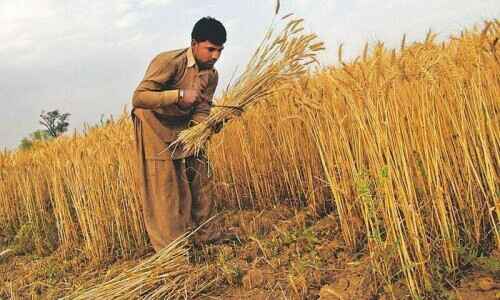LAHORE: The farming community is concerned about government plans to impose sales tax on agricultural inputs in the budget 2024-25. Farmers believe this measure would raise the cost of cultivation, which is already under inflationary pressure and would have far-reaching consequences for the struggling community.
Pakpattan district farmer Aamer Hayat Bhandara stated: “This tax burden poses a threat to the sector in an economy where farmers are already struggling to attain profitability.” He cautioned that it would worsen food inflation, which is a continuous fight for the average person.
Taxing agricultural inputs could force farmers to sacrifice product quality, which would reduce crop yields and perhaps have an effect on crop quality, generating issues with nutrition and food security.
Mahmood Nawaz Shah, President of the Sindh Abadgar Board, bemoaned the many uncontrollable difficulties farmers confront, such as the paucity of resources and the consequences of climate change. He pleaded with the government to take the actual world into account when establishing tax laws.
He pointed out that the possibility of exporting important products like rice and maize could be harmed by sales taxes on farm inputs.
It is important to keep in mind that at the same time period, maize exports have surpassed a record $500 million, while rice exports have approached $3–4 billion. He continued, “The farm sector needs strong government support at this crucial moment to increase exports rather than impede them.
Mr. Bhandara stated that a national discussion on agriculture taxation is necessary in Pakistan and that a system that provides farmers with incentives similar to those given to the industrial sector is also necessary.
He claimed that farmers were once again severely impacted by “poor decision making” after last season’s losses in corn crops, as they were forced to accept a 25% loss on their wheat harvest. “It will further burden small and mid-size farmers whose economy is already dependent on expensive loans and credits if we impose sales tax on farm inputs too,” he continued.
“We need to take into account the real challenges and their impact on farmers in an industry where smallholders make up the majority of growers,” Multan resident Naseer Baloch stated. Over the previous three years, the price of growing important crops has more than doubled. Any further tax will force farmers to work at subsistence levels, which will lower agricultural productivity.
In order to increase productivity and start realizing the sector’s full potential, he emphasized the need to fortify it with enabling and supportive policies.








